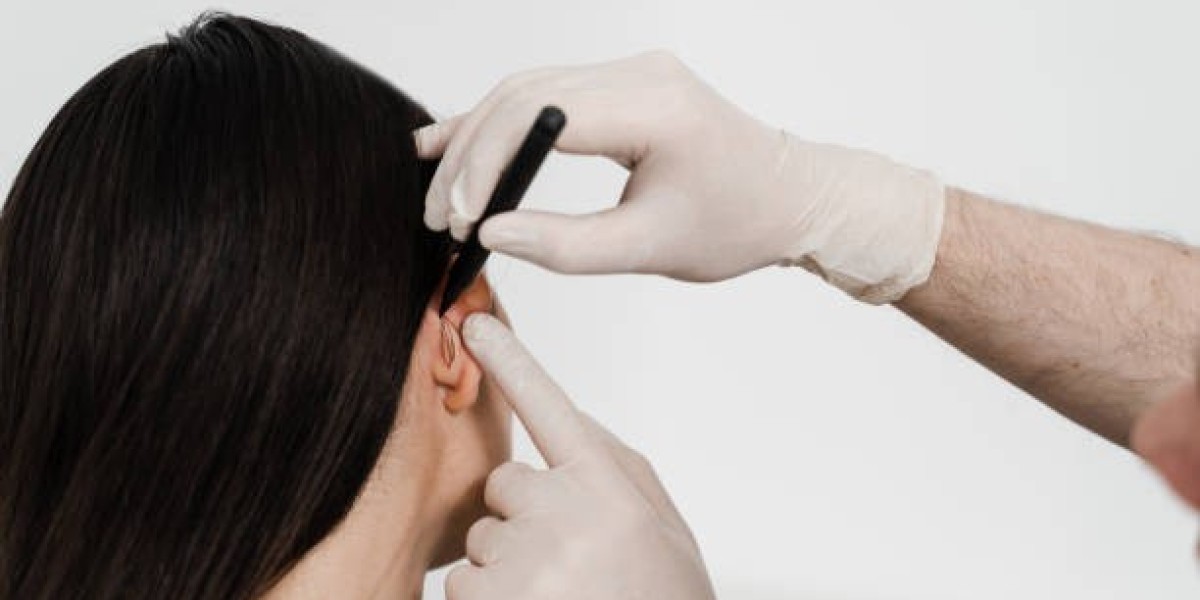When considering any cosmetic procedure, especially one as delicate as ear reshaping surgery, it’s essential to gather all the necessary information before making a decision. This ensures you feel confident and well-prepared for the journey ahead. If you are exploring options for improving the appearance of your ears, knowing the right questions to ask your surgeon can make all the difference.
we will dive deep into the Ear Reshaping Surgery in Riyadh(جراحة تجميل الأذن في الرياض) process—from preparation to recovery—and highlight the most important questions you should ask your surgeon. This will help you understand the procedure thoroughly, manage your expectations, and ensure the best results possible.
Understanding Ear Reshaping Surgery
The surgery typically involves repositioning or reshaping cartilage and skin to create a more natural or aesthetically pleasing ear contour. It is important to consult with a board-certified surgeon who specializes in this type of procedure to ensure safety and optimal results.
Why Asking Questions Is Crucial
As with any surgical procedure, knowledge is power. Asking the right questions helps you understand what to expect, identify potential risks, and clarify any doubts that may arise. It also promotes a strong surgeon-patient relationship, fostering mutual trust—an essential component of successful surgery outcomes.
Moreover, focusing on personalized information during your consultation allows your surgeon to address your unique concerns and goals, tailoring the procedure accordingly.
Key Questions to Ask Your Surgeon Before Ear Reshaping Surgery
Am I a Good Candidate for Ear Reshaping Surgery?
Understanding your suitability is the foundation of any surgery. Discuss your medical history, ear anatomy, and aesthetic goals with your surgeon. Some patients may have skin conditions or cartilage issues that affect candidacy.
What Surgical Techniques Will Be Used?
There are several techniques for ear reshaping, depending on the issue being corrected. Ask about the approach your surgeon prefers and why it best addresses your concerns. This helps you understand the procedure’s details and innovations.
What Are the Risks and Potential Complications?
Every surgery comes with risks, such as infection or scarring. A transparent discussion about possible complications helps you prepare mentally and physically. It also demonstrates the surgeon’s honesty and professionalism.
How Long Is the Recovery Process?
Knowing what to expect during recovery—including swelling, bruising, activity restrictions, and follow-up —helps you plan your schedule and manage discomfort effectively.
When Will I See the Final Results?
Ear reshaping results can take time to fully appear as swelling subsides and tissues heal. Understanding this timeline prevents unrealistic expectations and disappointment.
Can You Show Me Before and After Photos?
Reviewing previous patients’ results gives you an idea of the surgeon’s aesthetic style and skill level. This also helps you gauge if their outcomes align with your goals.
Will There Be Any Visible Scars?
Ask about incision locations and scar visibility. Most ear reshaping surgeries place incisions in less visible areas, but it’s important to know what to expect and how scars are managed.
How Should I Prepare for the Surgery?
Preparation is key to a smooth procedure and recovery. Ask about medications to avoid, lifestyle changes, or specific instructions pre-surgery.
What Are the Costs and Payment Options?
What Happens if I’m Not Satisfied with the Results?
While most surgeries have positive outcomes, it’s wise to discuss revision options or corrective procedures in case your results fall short of expectations.
Additional Tips for a Successful Consultation
Be Honest About Your Expectations
Clearly communicate your desired outcome with photos or descriptions. This ensures your surgeon understands your vision.
Take Notes
Writing down answers and key points discussed helps you review and remember important details post-consultation.
Bring a Loved One
Having someone with you can offer emotional support and help recall information later.
What to Expect During Ear Reshaping Surgery in Riyadh
This surgery generally lasts between 1 to 3 hours under local or general anesthesia, depending on complexity. After reshaping the cartilage and skin, incisions are closed with sutures designed to minimize scarring. Patients usually experience some swelling and mild discomfort during the initial days post-surgery.
Following the procedure, surgeons typically recommend wearing a protective headband or dressing to support healing. Avoiding strenuous activities and protecting the ears from trauma are essential during recovery.
Conclusion
Choosing to undergo Ear Reshaping Surgery in Riyadh is a significant decision that requires thorough research and an open conversation with your surgeon. By asking the right questions, you empower yourself with knowledge, reduce anxiety, and pave the way for a satisfying surgical experience. Remember that every patient’s needs are unique—finding the right surgeon who listens and understands your goals is paramount to achieving the best outcomes.
Frequently Asked Questions
How painful is the ear reshaping surgery recovery?
Most patients experience mild to moderate discomfort, which can be managed with prescribed pain medication. Swelling and sensitivity usually diminish within two weeks.
Are there any age restrictions for undergoing ear reshaping surgery?
While many candidates are adolescents or adults, ear reshaping can be performed on children as young as five, depending on ear cartilage development and the individual's readiness.
Can ear reshaping surgery fix asymmetrical ears?
Yes, otoplasty techniques are designed to address asymmetry by reshaping each ear for a more balanced appearance.
How long do the results of ear reshaping surgery last?
Results are typically permanent, though natural aging and injury can affect the ears over time.
What precautions should I take after surgery to avoid complications?
Avoid touching or putting pressure on the ears, keep the surgical site clean, and follow all postoperative care instructions provided by the surgeon.
Is ear reshaping surgery covered by insurance?
Insurance coverage varies and usually depends on whether the procedure is deemed medically necessary versus cosmetic. It’s best to check with your insurance provider.






